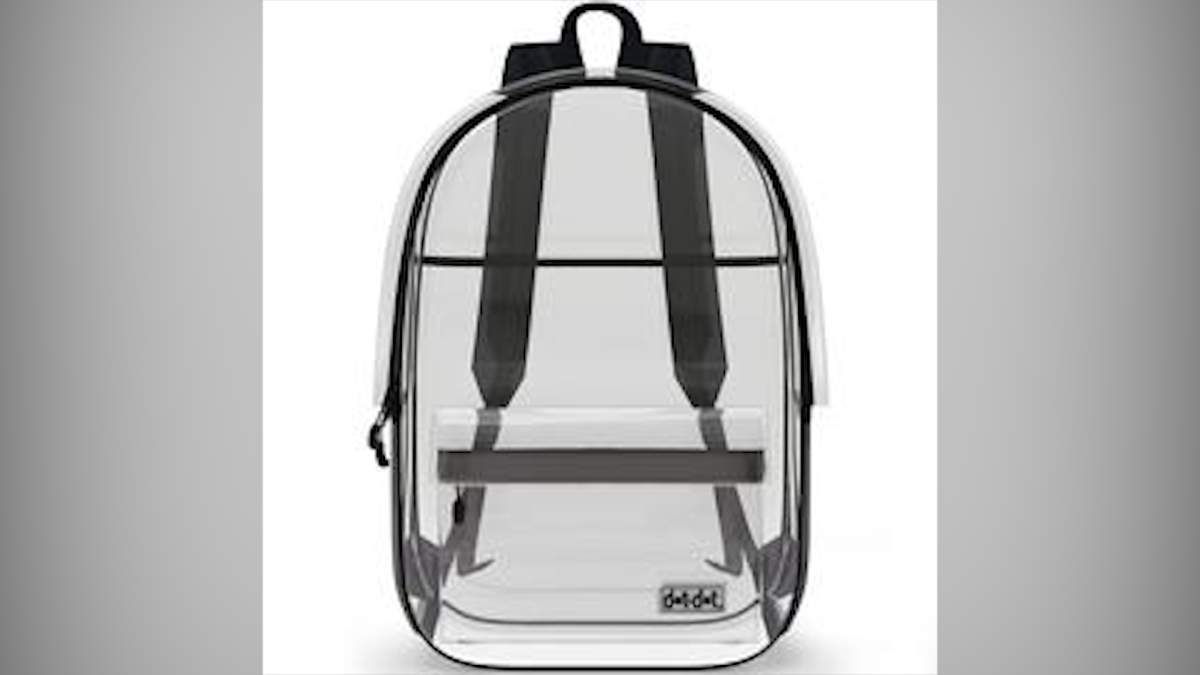More than a month after a teenager carrying an assault weapon killed 17 people at Marjory Stoneman Douglas high school in Parkland, Fla., the school is requiring students to carry clear backpacks and identification badges upon their return from spring break.

Broward Schools superintendent Robert Runcie told parents in a two-page letter about the security changes. It said the backpacks will be given to students at no cost when they return to school on April 2. He also noted that metal detectors may soon be installed at the school.
In a second letter, which details the security measures to be implemented across the school district, Runcie outlines that classroom doors will be locked at all times and surveillance and security systems will be upgraded.
“Over the past several weeks, we have received many inquiries regarding the District’s efforts to fortify school campuses and enhance safety protocols. We want to assure you that the safety and security of our students and employees remain our highest priorities,” Runcie wrote.
Parents district-wide were also informed via the letter that reinforced safety protocols will include expediting “single-point entry” measures for visitors and revisiting “code-red” active-shooter protocols.
In addition to the backpacks, badges and metal detectors, Gov. Rick Scott recently ordered eight highway patrol troopers to begin assisting sheriff’s deputies in patrolling the high school on Thursday, just days after suspect Nikolas Cruz’s brother was arrested there.

Get daily National news
The troopers will be stationed at the school indefinitely, along with Broward County deputies and there will be an armed guard stationed at every entrance.
According to the National Center for Education Statistics, nine in 10 American public schools already run some form of mass shooting drill, and six states require specific “active shooter” drills to be run several times per year.
Some schools have even gone beyond drills and security. The FBI published a report in 2013 suggesting that running lockdown drills may not be enough to combat the mass shooting epidemic, and additionally suggested running off school property, hiding in a locker room and even fighting off the shooter “to survive and protect others from harm.”
According to school crisis management expert Amy Klinger, these kinds of protocols are often developed in response to major events, such as the Parkland school shooting. It’s important, she states, to strike a balance between maintaining security while avoiding cultivating a “prison mentality” in schools.
“You want to make sure that you don’t have this mentality of we’re watching you because we don’t trust you,” said Klinger.
Contrary to the cries of Marjory Stoneman Douglas students, she argues that in the midst of crises like the one in Parkland, requiring students to carry clear backpacks and asking staff to wear identification badges isn’t going too far.
“I’ve seen places do clear backpacks and identification badges, typically this happens after a big event. I would rather see people leave things in their lockers and not carry anything around at all,” she said.
She emphasized, however, that these kinds of precautions can’t be taken in the absence of training teachers and faculty to respond to and prevent tragedies like Parkland from taking place.
“We need to be sensitive to the prison mentality, and we also need to stop buying stuff and start training people.”
- Latest alleged Iranian regime official found in Canada wants his identity hidden
- Why Canadian beer cans are ‘almost impossible’ as tariffs near 1-year mark
- Jivani’s trip to Washington has some Conservative MPs scratching their heads
- Canadian Tire ordered to pay nearly $1.3 million for false advertising





















Comments